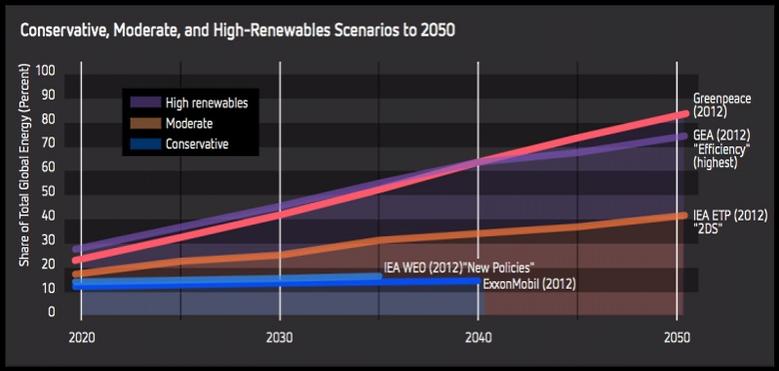
WBG RENEWABLE INVESTMENT: $5 BLN

WBG - In a major announcement at the One Planet Summit here today, the World Bank Group committed $1 billion for a new global program to accelerate investments in battery storage for energy systems in developing and middle-income countries. The program is expected to help these countries ramp up their use of renewables – particularly wind and solar power – improve energy security, increase grid stability and expand access to electricity.
The $1 billion in World Bank Group financing is expected to mobilize another $4 billion in concessional climate financing and public and private investments. The program aims to finance 17.5 gigawatt hours (GWh) of battery storage by 2025 – more than triple the 4-5 GWh currently installed in all developing countries.
"For developing countries, this can be a game changer," said World Bank Group President Jim Yong Kim. "Battery storage can help countries leapfrog to the next generation of power generation technology, expand energy access, and set the stage for much cleaner, more stable, energy systems."
Currently, batteries used in energy generation systems are expensive, and most projects are concentrated in developed countries. The "Accelerating Battery Storage for Development" program, in response to demand from countries, will finance and de-risk investments such as utility-scale solar parks with battery storage, off-grid systems – including mini-grids – and stand-alone batteries that can help stabilize and strengthen grids.
The program will also support large-scale demonstration projects for new storage technologies suitable for developing countries' needs – such as batteries that are long-lasting, resilient to harsh conditions and high temperatures, and that present minimal environmental risks.
"Batteries are critical to decarbonizing the world's power systems. They allow us to store wind and solar energy and deploy it when it's needed most to provide people with clean, affordable, round-the-clock power." Dr. Kim said. "We call on our partners to join us and match the investments we're making today. We can create new markets for battery storage in countries with high wind and solar potential, growing energy demand, and populations that still live without reliable electricity."
The World Bank Group is putting $1 billion of its own funds towards this new program and will fundraise another $1 billion in concessional climate funds through channels such as the Climate Investment Funds' Clean Technology Fund (CTF). The program is expected to raise an additional $3 billion from public and private funds and investors.
The new program will also convene a global think tank on battery storage, bringing together national laboratories, research institutions, development agencies and philanthropies to foster international technological cooperation and training that can develop and adapt new storage solutions tailored for the needs and conditions of developing countries.
The World Bank Group has been working with countries to support the deployment of batteries together with solar and wind power for several years, with projects currently underway in Africa, South Asia, and the Pacific. The Bank Group has financed roughly 15 percent of the stationary battery storage capacity already deployed or currently under development in developing countries, mostly through mini-grid projects and in island states to improve resilience.
-----
Earlier:

2018, July, 25, 09:10:00
RENEWABLE INVESTMENT DOWNFT - Capital spending in renewable power generation fell 7 per cent in 2017 compared with the previous year, owing to declines in onshore wind and hydropower investment, according to a report from the International Energy Agency. The world’s leading energy watchdog reported that overall global energy investment dropped 2 per cent in the same period.
|

2018, July, 23, 13:25:00
GLOBAL ENERGY INVESTMENT DOWN 2%IEA - For the third consecutive year, global energy investment declined, to USD 1.8 trillion (United States dollars) in 2017 – a fall of 2% in real terms. The power generation sector accounted for most of this decline, due to fewer additions of coal, hydro and nuclear power capacity, which more than offset increased investment in solar photovoltaics.
|

2018, June, 15, 10:50:00
EU RENEWABLE ENERGY - 2030: 32%REUTERS - EU negotiators agreed on Thursday to increase the share of renewables in the bloc’s energy production to 32 percent by 2030, a higher target than in draft rules but short of the level sought by some governments and the European Parliament.
|

2018, March, 28, 11:15:00
GLOBAL ENERGY DEMAND + 2.1%IEA - Global energy demand rose by 2.1% in 2017, more than twice the previous year’s rate, boosted by strong global economic growth, with oil, gas and coal meeting most of the increase in demand for energy, and renewables seeing impressive gains.
|

2017, December, 13, 12:15:00
WBG: NO OIL&GAS FINANCEWBG - The World Bank Group will no longer finance upstream oil and gas, after 2019.
|

2017, November, 15, 15:15:00
IEA: GLOBAL ENERGY DEMAND UP BY 30%Global energy needs rise more slowly than in the past but still expand by 30% between today and 2040. This is the equivalent of adding another China and India to today’s global demand. |

2017, September, 25, 13:10:00
RENEWABLE ENERGY UPChina accounts for the lion’s share of the upsurge. But Middle East and north African countries are scheduled to have installed 14GW in solar plants by the end of 2018 — a seven-fold increase from 2015. Central and South America are also expected to reach 14GW, nearly five times more than in 2015, while India is set to hit 28GW, a jump of nearly six times. |





